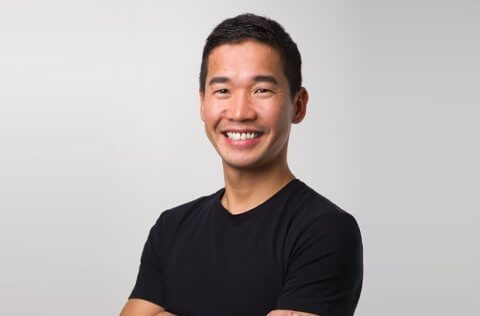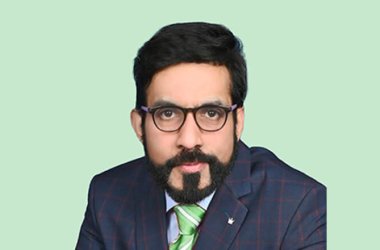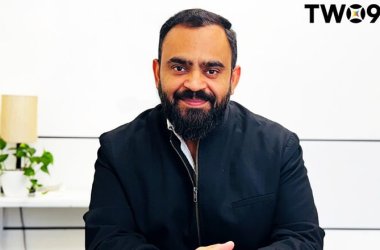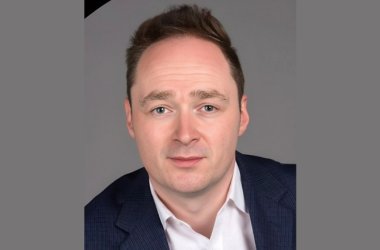CNME Editor Mark Forker spoke to Oko Davaasuren, Senior Director at TechStars, to learn more about his entrepreneurial journey, his passion for entrepreneurship and nurturing start-up companies – and how there is no ‘quick fix’ when it comes to success, citing that the journey to IPO, or unicorn status is a long process.

Oko Davaasuren has enjoyed a decorated career as an entrepreneur, one which has seen operate in multiple marketplaces all over the world.
However, his love for entrepreneurship was born in the USA, when the Mongolian native accepted the offer of a scholarship at Portland State University.
“I am originally from Mongolia, but I got the bug for entrepreneurship when I went to the United States on a scholarship. The entrepreneur culture is prevalent all over the US, but my first foray into that world was driven out of necessity in order to pay my tuition fees. I created my first start-up company, and the success of that business helped ease the financial burden I had to get through college. However, that experience really stayed with me, it was empowering,” said Davaasuren.
After 10 years in Oregon, Davaasuren decided that he wanted to go back to Mongolia and see could he harness his new found skills in entrepreneurship to build an entrepreneurial ecosystem in his homeland.
“I wanted to see if tech entrepreneurship was something that I could help my local community in Mongolia with. What that process in the US really helped me to understand was the fact that when we talk about tech entrepreneurship, and the culture that comes with it, it’s not just about venture building, or economic activity, it’s a really powerful tool for empowering, and building confidence amongst young people – and that’s what I really wanted to promote and foster in Mongolia,” said Davaasuren.
Davaasuren joined TechStars in 2015, and his first role at the accelerator was to work closely with the Malaysian government to roll out start-up programs.
“I was tasked with the responsibility of working on programs with the Malaysian government to help Malaysian start-ups and entrepreneurship movements in the country. I am so passionate about working with start-ups, so the job was a dream position. I love mentoring new start-ups in an effort to validate their business idea. Over the last 9 years I have helped build ecosystems and start-up communities in so many different countries, and that has been a great experience,” said Davaasuren.
However, Davaasuren was quick to point out that in many of these countries the ‘language’ was a huge roadblock in terms of really driving and developing these start-up ecosystems.
“In some countries you may find that the culture is just not there yet, but the desire to problem solve certainly is. When we talk about entrepreneurial journeys, and we try to foster these start-up ecosystems, essentially, we are talking about something very fundamental, which is helping young people to believe in themselves, and to take action to solve a problem. It fosters a growth mindset that is supported by this community aspect. It definitely existed in Mongolia when I went there, but what was missing was the language, new trends – and the academic and theoretical work that is needed is predominantly in English, so that was a barrier,” said Davaasuren.
One of the first things Davaasuren set about to do in Mongolia was create the translation for the word start-up, and he did the same with the word entrepreneur, highlighting that they used the Russian version of the word, as it was very similar to the English one.
Davaasuren conceded that there is a large volume of accelerator programs worldwide, but he believes the strength of their network is a key differentiator.
“The Techstars worldwide network helps entrepreneurs succeed and our main program is the mentor-driven accelerator program. There’s this element of community and networking infused within the program. If you look at other accelerator programs the one differentiating aspect is the network. If you strip down all the program mechanics, the investment models, and the way in which we all deliver training in entrepreneurship then you can see that the methodology is very similar. However, TechStars created a global accelerator network and open-sourced our accelerator model, but what differentiates us is undoubtedly the strength of our network,” said Davaasuren.
Davaasuren also added that from its very inception TechStars has always fundamentally believed entrepreneurs are everywhere, and wanted to move away from the perception that to be an entrepreneur you had to be based in Silicon Valley.
Luckily, from my own experience, I got mentored in how to build a community, and leverage a network to support entrepreneurs, and that’s fundamentally what TechStars believes in, and that is one of the superpowers behind the TechStars brand. TechStars was not born in Silicon Valley, it believed that entrepreneurs were everywhere, you didn’t need to be in the Valley to be successful, and that’s why we based ourselves in Bolder,” said Davaasuren.
In 2022, TechStars invested in 600 companies, which makes them one of the leading early-stage investors globally.
The scale of their investment is off the charts, and in 2023, TechStars are aiming to invest in 800 companies.
Davaasuren believes that those numbers basically represent the fact that there are tonnes of opportunities out there.
In terms of the process to join the TechStars program, Davaasuren conceded that it was competitive, but said start-ups can select the thematic program that best suits their business.
“We run around 50+ accelerators globally. We are in Europe, Africa, Asia and the US. The process that typically happens is a founder will look for a program that fits their business. For example, say there is a Japanese company that wants to expand to the US, then they would apply to a TechStars program in Boston, New York, or, LA. In addition to this, some of our programs are thematic. In Dublin, we have our Web3 program, and we also have a space accelerator based out of LA, so you basically choose a program that thematically matches your business idea. Applications are always open because of the volume of accelerators we have globally – and we have a lot of resources on how to effectively submit your application,” said Davaasuren.
Davaasuren said that ‘mentor whiplash’ was one of the challenges that many founders face when they enter the accelerator program at TechStars – and that their business being driven in another direction can be difficult for some founders to digest.
“It is our job to find the correct product marketplace for each start-up. We utilise our mentors within our community to help founders understand our process. For example, each class we run has 10 start-ups, and they will be given access to over 100+ mentors throughout their 3-month period in the accelerator program, and they can be exposed to mentor whiplash. We call it mentor whiplash because those on the program are going to be hearing these experiences from so many investors and entrepreneurs that are volunteering their time, so they are going to tell them the way they see it. They will see a business idea and say, look I have done this, how about this? What happens then is sometimes founders can become resistant to these ideas, and then when they are pointed in a completely different direction to where they think they are headed, they can be like, what the hell just happened? That’s why we call it mentor whiplash, but this is all part of the TechStars experience,” said Davaasuren.
Another challenge according to Davaasuren is managing expectations, as he pointed out there is no fast-track route to success when building a tech product.
“I think one of the main challenges that I see is some founders have the wrong expectations in terms of what it means to be an entrepreneur. A large number of tech start-ups think that’s it’s an easy path, and they can exit and have IPOs very soon, but we know that’s not the reality. Statistically speaking, even the successful tech start-ups, it takes them around 8 years to be a tech unicorn, so it’s a long process. There is no quick fix, some entrepreneurs have this mindset in which they think I’ll build this business for 3 years, and then sell it off, and yes, that can happen, but those start-ups are very much in the minority. It takes time to build a successful product and business,” said Davaasuren.
He concluded a wonderful interview by highlighting that the key ingredient TechStars look for, is not in the quality of the product, but instead in the person behind the business – and offered his advice in terms of start-ups and entrepreneurs can be a success.
“We are all about people, people and people. However, we always ask ourselves how coachable are they? The best advice I have heard about being an entrepreneur is to learn really fast. It’s all about experimentation and validation. You don’t know the answer, so don’t be afraid to fail, and be open to being coached and be open-minded. There is a reason why this whole community comes together to makes start-ups successful. However, if you are rigid, afraid and closed off then your journey is going to be very limited,” said Davaasuren.





